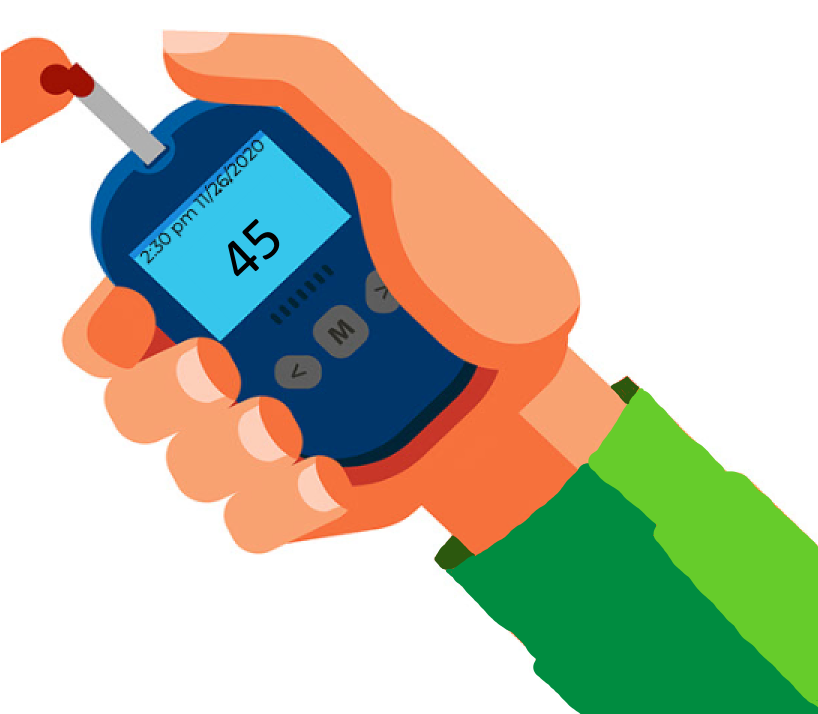New Medicine Could Help Protect People with Type 1 from Hypoglycemia
By Arvind Sommi
 Glucagon is a hormone released by your pancreas that raises the amount of glucose in your blood to help make sure you don’t develop hypoglycemia. Unfortunately, people with type 1 diabetes may have an impaired glucagon response. Researchers are investigating a new medication to stimulate glucagon release, to prevent hypoglycemia for people with type 1 diabetes.
Glucagon is a hormone released by your pancreas that raises the amount of glucose in your blood to help make sure you don’t develop hypoglycemia. Unfortunately, people with type 1 diabetes may have an impaired glucagon response. Researchers are investigating a new medication to stimulate glucagon release, to prevent hypoglycemia for people with type 1 diabetes.
Clinical Trials Identifier: NCT04432090
Trial Name: Study of the Pharmacologic Action of a GPR119 Agonist on Glucagon Counter-regulation During Insulin-induced Hypoglycemia in Type 1 Diabetes Mellitus (PHROG)
Diabetes Type: Type 1
Trial Sponsor: Translational Research Institute for Metabolism and Diabetes, Florida
Trial Locations: AdventHealth in Orlando, Florida
What is trial testing?
This clinical trial is seeking 29 participants. The goal is to see if a new medication could increase a person’s response to low glucose levels by helping your alpha cells release glucagon (these are the glucagon-producing cells in the pancreas).
Participants will be given either a pill containing the study medication, called MBX-2982, or a placebo pill. The study will primarily measure the amount of glucagon released during hypoglycemia at Day 14 and Day 28. Results will be compared to healthy participants who do not have diabetes and who will not be given the medication or a placebo in order to establish a reference point.
Why is this new and important?
As a reminder, the beta cells in your pancreas are responsible for the secretion of insulin. Right next to these beta cells are pancreatic alpha cells that are usually stimulated to release the hormone glucagon when your blood glucose levels are too low. People with type 1 diabetes are more likely to experience hypoglycemia as a result of insulin treatment because their bodies have trouble activating the alpha cells to release enough glucagon.
Researchers believe that one way to get alpha cells to secrete glucagon is by activating a receptor on the surface of the cell called GPR119. This receptor can be activated by a small molecule called an “agonist” – in this case, the clinical trial is testing a medicine (MBX-2982), which contains GPR119-agonist molecules.
When the GPR119-agonist molecules latch onto the GPR119 receptors in your alpha cells, it can lead to them releasing glucagon, triggering an increase in glucose in the blood. In a 2018 study, researchers found that GPR119-agonists improved glucagon secretion in mice with diabetes.
This clinical trial could potentially support the use of these GPR119 agonists by people with type 1 diabetes. If researchers find that the experimental medication MBX-2982 significantly improves glucagon secretion, it could become a valuable tool in hypoglycemia management.
To learn more about hypoglycemia and glucagon read, “Low Blood Sugar – Hypoglycemia 101.”
Are you interested?
You may be eligible for this study if you:
-
Are older than 20
-
Have been diagnosed with type 1 diabetes for at least five years
-
Have a BMI between 19 and 30
-
Do not use non-insulin therapies for treating your diabetes
For More Information: To learn more, please contact the AdventHealth Recruitment Department at 407-303-7100 or Fh.tri.recruitment@adventhealth.com.








